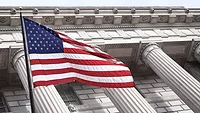DHS Proposes Canada-US-Mexico Crossing Fee
In its 2014 budget proposal, DHS is considering collecting a crossing fee for both pedestrians and passenger vehicles along the Canadian and Mexican borders to cover increasing security costs.
Opponents of the proposed fee already lashed out against it, saying it will complicate trade between the U.S. and Canada. It is estimated that nearly $1.6 billion in trade takes place every day along the U.S.-Canada border.
The Canadian Chamber of Commerce called the fee a "serious mistake” and promised to fight it.
While travelers entering the U.S. by air already pay a fee -- included in the price of a plane ticket -- those entering the U.S. at land crossings do not pay. Drivers do, however, face tolls, as they cross bridges spanning the border.
The study would examine the feasibility of collecting the proposed fee from existing operators on the land border. The proposal is in its early stages, and details on how much the fee would be and how it would be collected are not clear.
Janet Napolitano, head of DHS, said that many of the fees -- which help to process the estimated 350 million travellers who cross the U.S. border each year -- have not been adjusted in more than a decade. "As the complexity of our operations continues to expand, the gap between fee collections and the operations they support is growing, and the number of workforce-hours fees support decreases each year," she said.
Looking for a reprint of this article?
From high-res PDFs to custom plaques, order your copy today!





